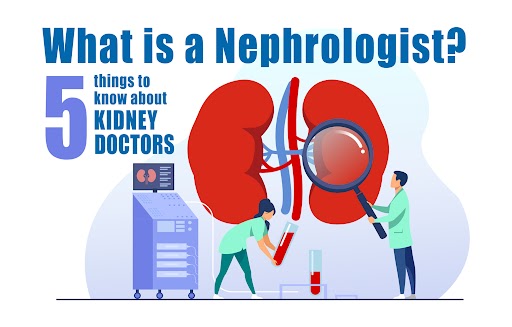Chronic kidney disease (CKD) can be a life-altering diagnosis. As the disease progresses, you may confront difficult questions about your future and the medical care you want to receive. Open and honest conversations with your healthcare team are crucial during this time. This article explores the importance of end-of-life discussions in kidney disease and empowers you with information to navigate these sensitive conversations.
Why Are End-of-life Discussions Important?
End-of-life discussions are not about giving up hope; they’re about taking control and ensuring your wishes are respected. By openly discussing your goals and preferences, you can:
- Align Your Care with Your Values: What matters most to you in life? Do you prioritize aggressive treatment options to extend life expectancy, or would you prefer a focus on comfort and quality of life? Early discussions ensure your care plan reflects your values.
- Reduce Burden on Loved Ones: Difficult decisions during a crisis can be emotionally draining for your family. Having a clear understanding of your preferences can alleviate stress and ensure your loved ones make choices aligned with your wishes.
- Promote Shared Decision-Making: End-of-Life discussions foster collaboration between you, your doctor (nephrologist), and your family. By understanding all available treatment options and their implications, you can make informed decisions with your healthcare team.

The “Ask-Tell-Ask” Approach
Many nephrologists utilize the “Ask-Tell-Ask” approach to facilitate these sensitive conversations. Here’s a breakdown of each step:
-
Ask: Assessing Understanding and Readiness:
- Your doctor will inquire about your current understanding of your kidney disease and its progression.
- They will also assess your openness to discussing future care options.
-
Tell: Providing Information in Manageable Portions
- Your doctor will explain the potential trajectory of your kidney disease in clear, accessible language.
- This may include information on treatment options like dialysis, transplantation, and conservative kidney management.
- It’s important to discuss the realistic outcomes and potential limitations associated with each option.
-
Ask: Checking Understanding and Addressing Emotions
- Your doctor will ensure you understand the information presented and answer any questions you have.
- It’s normal to feel overwhelmed or emotional during these discussions. Let your doctor know if you need breaks or would like to revisit topics later.
- Additionally, your doctor can offer resources for emotional support.
Key Considerations:
- Pace and Timing: Break down the conversation into smaller segments if needed.
- Cultural Sensitivity: Your doctor should be understanding and respectful of your cultural and religious values surrounding end-of-life care.
- Non-Abandonment: It’s essential to feel supported by your healthcare team throughout this process. Your doctor should emphasize that they are there for you regardless of your choices.
The Ask-Tell-Ask Approach in Action
Discussion Points:
As you watch, notice how the doctor:
- Ask: Begins by assessing the patient’s understanding of her illness and her openness to discussing end-of-life preferences.
- Tell: Gently provides information about her prognosis and possible treatment options, emphasizing the focus on comfort and quality of life.
- Ask: Checks in with the patient’s emotional state, asks about her goals, and explores concerns.
Key Takeaway:
This video demonstrates that end-of-life discussions don’t have to be scary or overwhelming. With empathy and open communication, a patient-centered approach can bring peace of mind.
FAQs about End-of-Life Discussions in Kidney Disease
-
Does talking about end-of-life care mean I’m giving up hope?
- Absolutely not. These conversations are proactive steps to ensure your wishes are respected and that you receive the kind of care that aligns with your goals – even as those goals might change over time.
-
How do I start a conversation with my family about this?
- It can be intimidating to bring up this topic. Sometimes, starting small is easier. Mention an article you read, or a movie scene that made you think about your future care wishes. Your nephrologist or care team can provide resources to help start those conversations with loved ones.
-
Is it too early to think about advance care planning?
- It’s never too early! Even healthy individuals can benefit from having basic advance directives in place. If you have a chronic condition like kidney disease, it’s even more important to plan ahead to avoid difficult medical decisions during a crisis. Ask your nephrologist or healthcare team about the steps involved in advance care planning.
-
What if my family disagrees with my choices?
- Open and honest communication is key. Share why you’ve made certain choices about your care. Try to understand your family’s perspectives as well. If disagreements persist, your doctor or a social worker may be able to help facilitate family conversations.
-
Where can I get help making decisions about treatment options?
- Your nephrologist is your primary partner in discussing all treatment options for your kidney disease. Palliative care specialists offer additional support, explaining the pros and cons of different treatments in the context of your goals and priorities.
Understanding Treatment Options in Kidney Disease
Here’s a brief overview of some common treatment options for advanced kidney disease:
- Dialysis: A treatment that filters waste products and excess fluid from your blood when your kidneys can no longer do this function adequately. There are two main types: hemodialysis (using a machine) and peritoneal dialysis (using the lining of your abdomen as a filter).
- Transplantation: Surgery to replace your diseased kidneys with a healthy kidney from a donor.
- Conservative Kidney Management: This approach focuses on managing symptoms and complications of kidney disease without dialysis or transplantation. This may include medication, dietary changes, and managing blood pressure.
What are Advance Care Planning and POLST?
-
Advance Care Planning (ACP): This involves thinking about your future healthcare preferences and making decisions in case you become unable to speak for yourself. It includes things like:
- Creating an advance directive: A legal document specifying your wishes for medical care in certain situations.
- Designating a healthcare power of attorney: A trusted person authorized to make healthcare decisions for you.
- Discussing your goals and priorities for care with your loved ones and healthcare team.
- POLST (Physician Orders for Scope of Treatment): This is a medical form that outlines your preferences for life-sustaining treatments (such as CPR, artificial nutrition, etc.) in the event of a serious illness or medical crisis. It’s designed to be easily understood and honored by emergency medical personnel. POLST is a particularly valuable tool for those with advanced illnesses or those who want to ensure their treatment preferences are clear in case of a medical emergency.
Understanding the Relationship
- POLST complements Advance Directives: Think of POLST as a more immediate and actionable version of your advance directives, focusing specifically on life-sustaining treatments in urgent situations.
- Who Should Consider POLST: If you have advanced kidney disease, are frail, or have a limited life expectancy, a POLST form can ensure your wishes are followed even if you are unable to communicate them yourself.
- Getting a POLST: Discuss POLST with your nephrologist. They can help you complete the form and ensure it’s integrated with your overall care plan.
- Learn More: Visit the National POLST website (https://polst.org/) or find your state-specific POLST program (https://polst.org/programs-in-your-state/)
The Role of a Surrogate
- Who is a Surrogate? A surrogate decision-maker, also called a healthcare agent, is the person you choose to make medical decisions if you are unable to do so yourself.
- Why is This Important? Having a designated surrogate ensures that someone who understands your values can advocate for your wishes if a critical situation arises.
Palliative Care: A Misunderstood but Essential Service

Palliative care is often confused with hospice care. While hospice care is generally reserved for patients with a life expectancy of approximately six months or less, palliative care can be beneficial at any stage of a serious illness, including kidney disease.
Palliative care focuses on improving your quality of life by managing symptoms like pain, fatigue, and shortness of breath. It also provides emotional and spiritual support for you and your family. Palliative care can be provided alongside any other treatment you may be receiving.
Where to Find Help and Support
- NephroTalk: (http://nephro-talk.com/) This patient-focused website offers a wealth of information on kidney disease, treatment options, and end-of-life discussions.
- Kidney Supportive Care (https://kidneysupportivecare.org/): This website provides comprehensive information and resources for patients and families facing kidney disease, with a dedicated section on supportive and palliative care.
- The Conversation Project (https://theconversationproject.org/): This organization offers tools, guides, and resources to help both patients and families initiate difficult healthcare conversations.
Additional Resources (for families and caregivers)
- National Hospice and Palliative Care Organization: (https://www.nhpco.org/) Locate hospice service providers and learn more about end-of-life care.
- Caregiver Action Network: (https://www.caregiveraction.org/) Resources and dedicated support for caregivers and loved ones.
Important Takeaways
- Your Voice Matters: Always remember that you are the expert on your own life. Your thoughts and wishes deserve to be heard and respected.
- It’s Never Too Early: It’s perfectly normal to start thinking about advance care planning early in your kidney disease journey. This helps ensure that your preferences are documented and available should a healthcare crisis occur.
- Support Is Available: You don’t have to navigate this journey alone. Your nephrologist, palliative care specialists, social workers, and loved ones can offer support and guidance. Don’t be afraid to ask for help and utilize available resources.
A Note of Encouragement
Facing the realities of end-of-life discussions can be incredibly emotional. Be kind to yourself throughout this process. Allow yourself to feel the emotions, reach out for support, and focus on the values and priorities that are most important to you.
Need Support? If you or a loved one are facing kidney disease and would like to learn more about your options, please don’t hesitate to contact The Kidney Experts, PLLC. We are here to support you every step of the way.
We welcome your comments and questions below. Please note that this blog post does not replace medical advice from your healthcare team.


